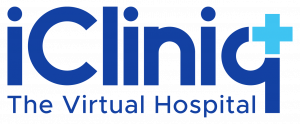Your diet can have a huge impact on your blood pressure.
[the_ad id=”6150″]
Consuming salty and sugary food items that are high in saturated and trans fats increases blood pressure. The best way to maintain healthy blood pressure is by avoiding such foods. If you have been diagnosed with hypertension, the American Heart Association (AHA) recommends eating many fruits, vegetables, whole grains, and lean protein and avoiding red meat, salt, and sugary drinks.
Hypertension or high blood pressure might not produce many symptoms, but it increases your risk of heart diseases and stroke. Modifying your diet by avoiding the following food items can prevent various potentially fatal complications of blood pressure.
1) Salt
Sodium in salt is the major contributor to high blood pressure. It affects fluid and electrolyte balance in the blood. Table salt contains around 40 % sodium. The daily sodium consumption should not be more than a teaspoon of salt or 2,300 mg of sodium. Processed and packaged foods, pickles, cured meat, canned beans, sauces, frozen pizza, sandwiches, store-bought soups, bread, etc., are all high in salt and are the foods that result in hypertension and heart diseases.
2) Processed Foods
Apart from salt, processed foods are high in saturated and trans fats, which are artificial fats that are added to increase the shelf life of packaged products. They raise the levels of bad cholesterol (LDL) and lower good cholesterol (HDL) levels, making them harmful for anyone, but have more detrimental effects on people with high blood pressure. Consuming such fats are linked with heart attack, stroke, and type 2 diabetes. Processed foods also contain a lot of sugar and carbohydrates. Instead of saturated fats, include plant-based monounsaturated and polyunsaturated fats, which are found in seeds, nuts, avocado, and olive oil.
3) Alcohol
Excessive alcohol consumption can result in dehydration and weight gain, both factors that result in high blood pressure. So, people with hypertension should reduce the amount of alcohol they drink. Some anti-hypertensive medications do not work as they interact with alcohol, making it hard to maintain healthy blood pressure. For those who are not hypertensive, consuming alcohol in moderation has been shown to reduce heart disease risk. But, only two servings per day for males and one serving for women.
4) Sugary Foods and Drinks
There are several ways in which sugar increases your blood pressure. Sugary beverages result in weight gain and obesity, resulting in high blood pressure. A study where sugar was decreased by 2.3 teaspoons for hypertensive females showed a drop in systolic and diastolic blood pressure. This is why you should limit the daily sugar consumption to 6 teaspoons for females and 9 teaspoons for males. Instead of sugary pastries, candies, and soft drinks, opt for fruits, which contain essential fibers and potassium, and help prevent high blood pressure.
5) Coffee
Caffeine present in coffee causes a sudden spike in the blood pressure and also stimulates the adrenal glands to release more cortisol and adrenaline, which further raises the blood pressure. This can have serious effects on your heart and libido. The relation between the sudden spike after drinking coffee is still not clear, but it is believed that caffeine blocks a hormone that keeps the arteries widened. With the hormone blocked, the blood vessels constrict, resulting in a rise in blood pressure.
6) Cheese
Cheese might be a great source of calcium and protein, but it is also high in saturated fats and salt. So, eating a lot of cheese can increase your blood pressure and cholesterol levels, making you susceptible to cardiovascular diseases (CVD).
Source

